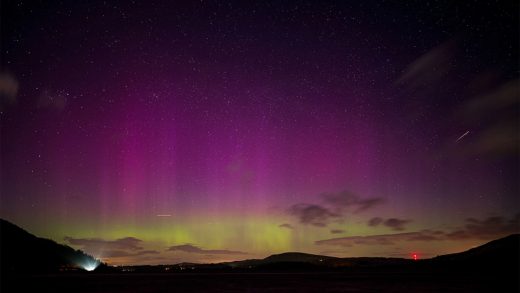Northern Lights may be visible in some states this week. Here’s where and when to look for the aurora borealis
Northern Lights may be visible in some states this week. Here’s where and when to look for the aurora borealis
According to a NOAA forecast, the lights may be visible this week from northern New York State to Idaho to the northern parts of Michigan and Wisconsin.
Ferris Bueller said it best: “If you don’t stop and look around once in a while, you could miss it.” So on Tuesday this week, don’t forget to look up, or you could miss what is looking like a spectacular show of Northern Lights right here in the United States.
What you need to know
The National Oceanic and Atmospheric Administration (NOAA) says a G2, moderate, geomagnetic storm has the potential to cause the aurora borealis to become visible “over some northern or upper parts of Midwest states from New York to Idaho.”
Want some viewing tips? NOAA advises, “Go out at night. Get away from city lights.”
The best seasons for aurora watching are around the spring and fall equinoxes since there is a tendency toward larger geomagnetic storms around these times. We are coming up on the fall equinox on September 22.
The lights are a result of this weekend’s coronal mass ejection, an eruption of solar material that dumps particles from the sun into space. When those reach Earth’s atmosphere, it creates a breathtaking array of blue, green, and purple in the sky.
It’s been an usually busy time for the Northern Lights, which are normally visible near the Earth’s poles. The increased geomagnetic storms are likely the result of the cycle that the sun makes about every 11 years, which is approaching its highest solar activity.
You can track the aurora on NOAA’s page, where the agency is providing live updates.
ABOUT THE AUTHOR
(10)



